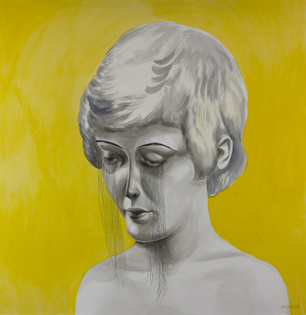
In 2010, Ali Liebegott took a road trip by train. Destination: the Emily Dickinson house. Along the way, she interviewed poets—Dorianne Laux, Marie Howe, CAConrad, and many more. We’ll be reposting the series to celebrate the release of Liebegott’s fourth book, The Summer of Dead Birds.
I interviewed language poet Rae Armantrout in her home in San Diego, California shortly after she was awarded the Pulitzer Prize for her poetry collection Versed. We first met in 2003 when I was an adjunct at University of California San Diego in 2003 and was a professor there. Some of her other books include: Extremities, The Invention of Hunger, Precedence, Necromance, Veil: New and Selected Poems, Up to Speed, Next Life, Versed, and Money Shot.
—Ali Liebegott
THE BELIEVER: Can you remember the first time you ever read an Emily Dickinson poem?
RA: When I was a kid my mother got me an encyclopedia for children. It was called Childcraft and it had two volumes dedicated to poetry for children and for some bizarre reason it had an Emily Dickinson poem in it. Although her poetry is hardly for children. (laughs) It’s about autumn and it starts, “the morns are meeker now” and it ends with “I’ll put a trinket on.” The leaves are changing and the seasons are changing and she’s going to try and match nature. Obviously the word trinket implies all you can do to match nature is pathetic and ineffectual. Or at least that’s how I take it. So that’s the first time I read an Emily Dickinson poem. She still surprises me, which is what I like best in a poet, really. She puts words together that you’ve never seen together before and never will see together again.
BLVR: It’s interesting how many people I’ve visited have been able to automatically remember that first Emily Dickinson experience.
RA: I remember first reading, A narrow fellow in the grass. Well, you’ve probably never seen narrow fellow together before and never will again. Of course she’s talking about a snake. She defamiliarizes that so immediately and gives you a creepy feeling right from the beginning. She’s so bold in the attitudes that she takes toward God for instance. In that time of revival meetings and tents and evangelical religion all around her she remained skeptical, engaged with religious thought but skeptical and challenging. She sort of throws out questions that challenge God. The end of that one famous poem where she says The Brain is just the weight of God – you imagine God in one hand and the brain in the other,...
You have reached your article limit
Sign up for a digital subscription and continue reading all new issues, plus our entire archives, for just $1.50/month.
Already a subscriber? Sign in




